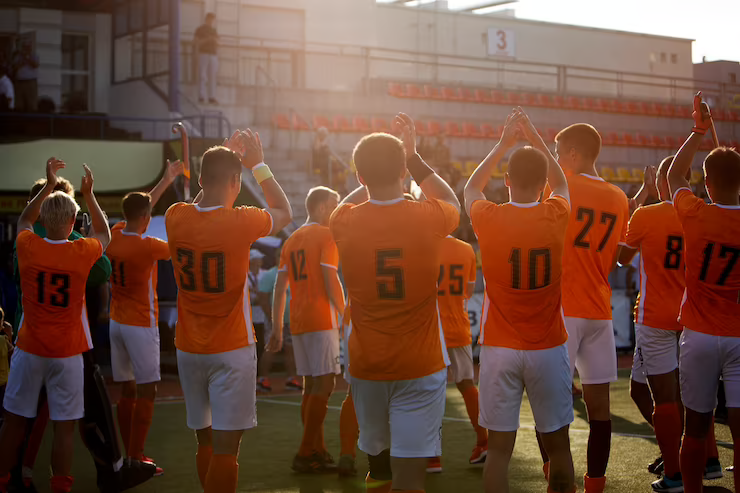The Importance of Role Models and Mentors in College Sports
College sports are a breeding ground for future athletes, and the impact of role models and mentors cannot be underestimated in shaping the lives and careers of young players. Role models in college sports act as beacons of inspiration, captivating the hearts and minds of aspiring athletes. Their achievements and perseverance are powerful catalysts, igniting a fire within the hearts of those who dream of following in their footsteps. Witnessing the triumphs and setbacks of these role models inspires young athletes to strive for greatness, pushing the boundaries of their abilities and maintaining unwavering determination.
The influence of role models and mentors transcends the boundaries of sports, leaving a lasting impact on the lives of college athletes as they embark on their journey toward success. In this article, we’ll delve into the multifaceted significance of having role models and mentors in college sports. We’ll explore how they inspire aspirations, provide guidance in skill development, nurture character, offer emotional support, assist in balancing academics and athletics, open doors to opportunities through networking, and foster personal growth beyond the game.
7 Ways Role Models and Mentors Encourage Budding Athletes in College Sports
- Inspiring Aspirations: The Catalyst for Success
College sports role models are strong motivators, encouraging young athletes to set lofty aspirations and pursue them tenaciously. College athletes are inspired and motivated by those who have excelled in their respective sports. Students are inspired to push past their comfort zones, aim for excellence, and keep a positive outlook when they see the successes and perseverance of their role models.
- Nurturing Character: Building Resilience and Integrity
Role models and mentors in college sports don’t just focus on athletic prowess but also emphasize character development’s importance. They instill values such as resilience, discipline, teamwork, and integrity, which are essential in sports and life. Not only in the field, but they also make students aware of the aim behind custom college apparel, promoting unity and diversity. Through their actions and words, role models and mentors demonstrate the significance of ethical behavior, fair play, and respect, molding student-athletes into well-rounded individuals.
- Guidance in Skill Development: Mastering the Craft
College athletes’ ability development depends greatly on their mentors. Mentors offer professional advice in perfecting techniques, enhancing strategies, and developing a thorough understanding of the sport with their wealth of experience. They aid athletes in determining their advantages and disadvantages, allowing them to customize their training and improve their performance. Athletes are given the appropriate tools and college gear to succeed on and off the field with the mentor’s tutelage.

- Emotional Support: Weathering the Storms
College sports can be emotionally demanding, with ups and downs that can significantly impact an athlete’s confidence and mental well-being. Role models and mentors provide a much-needed support system during challenging times. Their presence reassures athletes, giving them a sense of belonging and encouragement. By lending a listening ear and offering guidance, they help athletes navigate through setbacks, build resilience, and emerge stronger.
- Balancing Academics and Athletics: A Juggling Act
For college athletes, striking a balance between academics and athletics can be overwhelming. Role models and mentors understand this struggle and offer valuable insights on time management, prioritization, and maintaining focus. They share their experiences, providing practical advice on managing coursework, practice sessions, and competitions. This guidance assists athletes in staying organized and excelling in both academic and sporting endeavors.
- Networking and Connections: Opening Doors to Opportunities
Role models and mentors in college sports often have extensive networks within the sports industry. They can introduce aspiring athletes to influential figures, coaches, and potential sponsors. These connections can prove instrumental in securing scholarships, internships, and future career opportunities. By leveraging their relationships, mentors help students explore various avenues and provide valuable exposure to the professional world of sports.
- Personal Growth: Beyond the Game
Role models and mentors inspire holistic growth, emphasizing the importance of personal development beyond the confines of the sports arena. They encourage athletes to explore their interests, pursue education, and engage in community service. By fostering a broader outlook on life, role models and mentors ensure that college athletes have skills and values beyond their athletic careers.
End Note
The presence of role models and mentors in college sports is instrumental in shaping the lives of student-athletes. From inspiring aspirations to providing guidance and emotional support and fostering personal growth, these influential figures play a multifaceted role in the development and success of young athletes. The impact of role models and mentors extends far beyond the realm of sports, empowering students to become skilled athletes and well-rounded individuals ready to take on life’s challenges.

